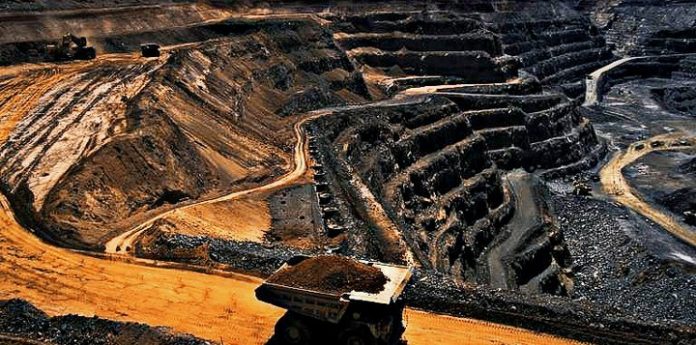KARACHI: “The first electron from Thar Coal will be added to the national grid by December 2018,” Chief Minister Sindh Murad Ali Shah said while presenting the provincial budget for the fiscal year 2018-2019 on Thursday.
Shah, who also holds the portfolio of the provincial finance minister, told the floor that Thar Block-II has been progressing ahead of its timelines both at mining level and the power plant construction level. The first seam of the Thar coal would be exposed and available for utilisation in June and pre-commissioning tests of the power plant would be conducted in July, he said. After the grid connectivity and synchronisation is established, the project will start providing electricity to the national grid.
Touted as a game changer for Pakistan’s energy sector, the $2 billion 660 Megawatt Thar Coal project is part of China Pakistan Economic Corridor (CPEC), Beijing’s One Belt One Road (OBOR) initiative that aims to create an economic trading block connecting more than 60 countries.
The government will spend Rs7 billion on the development of road infrastructure and water schemes for Thar Coal project in the upcoming fiscal year, the CM said. This is 3.4 per cent of the total amount set aside for the ongoing schemes – the government has allocated Rs252 billion under the annual development program FY2018-2019, out of which Rs202 billion will be spent on ongoing schemes while a provision of Rs50 billion was ear-marked separately as ‘Block Allocation’ for new schemes for all sectors.
“We believe that the solution of energy crises of Pakistan lies with Sindh, which is the energy hub of the country and it will brighten Pakistan,” Shah said. Energy is one of the three Es of the incumbent’s election manifesto, the other two being Education and Employment.
Besides base energy projects, the CM also unveiled their development plans for renewable energy sources. The government has so far allotted 53,600 acres of land in different districts for the development and production of wind and solar energy and reserved 42,000 acres for new projects in the renewable energy segment.
“300 MW additional power would be available by July 2018 by six more wind power projects,” Shah said, which will complement 935 MW of electricity already injected into the national grid through wind resources.
The Sindh Government plans to generate 2,485 MW wind power and 1550 MW solar energy through foreign funding. In this regard, it has finalised $105 million “Sindh Solar Energy Project” with the World Bank (WB) for deployment of solar PV technologies in Sindh. To be launched next financial year, the project comprises an urban rooftop solar program for Karachi and Hyderabad, village electrification for off-grid areas with an initial target of 200,000 households across Sindh, 50 MW grid-connected solar project at Manjhand, Jamshoro district and in-house capacity building.
“Conventional energy from Thar Coal and renewable energy from Jhimpir wind corridor would not only transform the destiny of the people of the province but also completely mitigate the crises of energy in the entire country,” the CM said.




